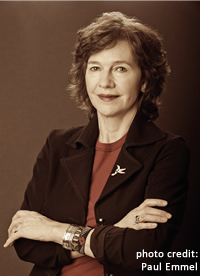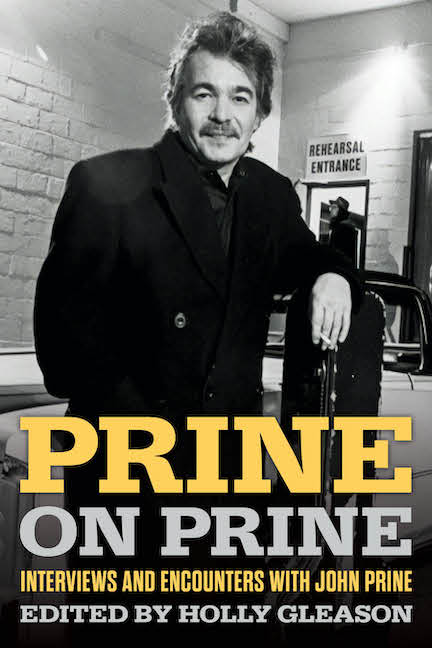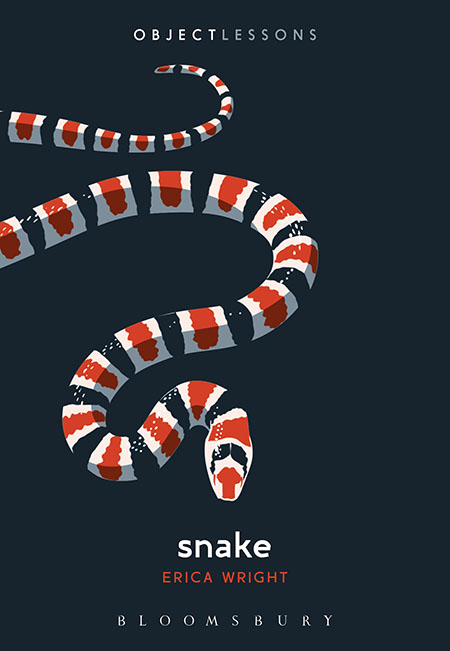Across the Generations
Louise Erdrich’s new novel is a mystery, a coming-of-age-tale, and a microcosm of Indian-Anglo relations, all at once
Louise Erdrich does not fit into any pigeonhole. Her career, spanning three decades and twenty-six books, may once have belonged in the category of the “Native American renaissance” of the late-twentieth century, but that classification is now too restrictive. Her work, which still typically depicts Indians of the American Midwest, reaches toward the universal even as it remains rooted in the particulars of the lives of the Indians who were driven from traditional lands and into the dubious safety of reservations. As many reviews of 2008 novel, The Plague of Doves, noted, Erdrich’s portrayal of four generations of families in the fictional town of Pluto, North Dakota, is similar in style and tone to Faulkner’s Yoknapatawpha novels. With the publication of The Round House, which continues the multi-family saga Erdrich began in The Plague of Doves, the echoes of Faulkner’s fictional county become more distinct and the similarities to Faulkner’s bleak vision more pronounced.
The Plague of Doves revolves around a crime from the distant past that continues to haunt the community: the lynching of three Indian men in 1911 for a brutal crime they didn’t commit. Though the town (whites and Native American alike) has tried to bury those horrific events, the violence continues to affect the descendants of everyone involved. In The Round House, another crime takes place, this time in the novel’s present tense of 1988. As the investigation unfolds, the connections between victims and perpetrators, whites and Indians, past and present, all become complicated. By the end of the novel, the crime has been solved, and justice of a sort has been rendered, but the diverse and desperate ways in which community members attempt to re-build their lives suggest that this act of violence, too, will reverberate for decades.
 When The Round House opens, thirteen-year-old Joe Coutts and his father come home to find Joe’s mother, Geraldine Coutts, sitting in the driver’s seat of her car, frozen in an attitude of terror. Joe insists on accompanying his parents to the emergency room, where they learn that Geraldine has been raped. Becoming morose and nearly comatose, she stays in her bedroom and declines all but the meanest forms of subsistence. She also refuses to identify her attacker.
When The Round House opens, thirteen-year-old Joe Coutts and his father come home to find Joe’s mother, Geraldine Coutts, sitting in the driver’s seat of her car, frozen in an attitude of terror. Joe insists on accompanying his parents to the emergency room, where they learn that Geraldine has been raped. Becoming morose and nearly comatose, she stays in her bedroom and declines all but the meanest forms of subsistence. She also refuses to identify her attacker.
Joe’s father, Judge Antone Bazil Coutts (a narrator from The Plague of Doves), knows from professional experience that his wife, perhaps still in fear for her life, may have good reason to refrain from naming her assailant. He spends his time reviewing recent cases that Geraldine, in her role as “tribal enrollment specialist” for the Ojibwe people, had processed in recent months. He also brings home documents from his own trials, scouring legal conflicts from his courtroom for suspects who may hold a grudge against his family.
Judge Coutts tries to keep Joe away from the investigation, in part to protect him from the world of adult criminality but also out of fear that Joe himself could become a target, but the young man’s persistence in searching for clues wins his father’s respect. In one episode that, fortunately, turns into a comic misadventure, Joe and his friends convince themselves that the local parish’s new Catholic priest, Father Travis (a former Marine with grisly combat scars), is guilty of the attack. The stern-but-loving lesson that Father Travis delivers to the boys—“You skinny creamers don’t know about women yet. You may think you do, but you don’t”—provides one of the many episodes where the novel’s mystery plot merges with Joe’s own coming-of-age tale.
Erdrich makes the risky choice to include episodes featuring Joe’s burgeoning sexuality within the framework of a rape investigation, a combination that could have resulted in diminishing the sexual assault by paralleling it with conventional adolescent randiness. Instead, Joe learns from his uncle’s common-law wife, Sonja (a former stripper and the most frequent object of his incipient lust), that getting what he wants from a woman isn’t worth the moral cost of becoming just another predatory man—in Sonja’s words, a “gimme-gimme asshole.”
 Though The Round House is told largely in Joe’s voice (unlike the rotating cycle of narrators in The Plague of Doves), Erdrich manages to smuggle in other voices through the stories Joe hears. One heartbreaking tale Judge Coutts tells his son is the deposition of Linda Wishkob. One of a set of twins born to a white family, Linda came out of the womb with a severe cranial malformation, and the doctors recommended that she be allowed to die. Instead, Linda was adopted by a “reservation woman” named Betty Wishkob, who worked in the hospital. Massaging the baby’s head every night in an attempt to mold it into a normal human shape, Betty saved Linda’s life; by adopting her and raising her as a daughter alongside her two other children, she gave Linda a family.
Though The Round House is told largely in Joe’s voice (unlike the rotating cycle of narrators in The Plague of Doves), Erdrich manages to smuggle in other voices through the stories Joe hears. One heartbreaking tale Judge Coutts tells his son is the deposition of Linda Wishkob. One of a set of twins born to a white family, Linda came out of the womb with a severe cranial malformation, and the doctors recommended that she be allowed to die. Instead, Linda was adopted by a “reservation woman” named Betty Wishkob, who worked in the hospital. Massaging the baby’s head every night in an attempt to mold it into a normal human shape, Betty saved Linda’s life; by adopting her and raising her as a daughter alongside her two other children, she gave Linda a family.
Fifty years later, Linda gets a call from her birth mother, Grace Lark, and agrees to have lunch with her. Their conversation is strained but cordial until Grace reveals that her son, Linden, needs a kidney transplant and that Linda is the only possible match. Linden himself is a drunken reprobate who tells Linda, “I don’t want your kidney. I have an aversion to ugly people. I don’t want a piece of you inside me.” But to the consternation of her Wishkob siblings, Linda goes through with the donation, a surgery that endangers her life and gives Linden an extended lease on his own vile existence. The story serves as a microcosm of Indian-Anglo relations throughout history.
The Round House keeps one foot in the present tense, but like The Plague of Doves, circles back in time to the building of the title’s “round house,” a ceremonial structure built, according to the dream-vision of its founder, to replicate the body of the buffalo and the protective spirit it long provided the Ojibwe people. That the round house becomes in this tale a place of hideous transgression is simply another sacrilege that has been visited upon the Coutts family and their people.
Erdrich’s heroes don’t wallow in victimhood, partially because they know that no one is purely innocent. As Joe’s cousin Evelina puts it in The Plague of Doves, “Now that some of us have mixed in the spring of our existence both guilt and victim, there is no unraveling the rope.” Through both her stoic characters and the light-hearted moments that temper the book’s sorrows, Erdrich conveys a life-affirming message that is at least as durable as the tragedies she depicts.
On October 9 at 6:15 p.m., Louise Erdrich will discuss The Round House at the Nashville Public Library as part of the Salon@615 series. The event is free and open to the public.


